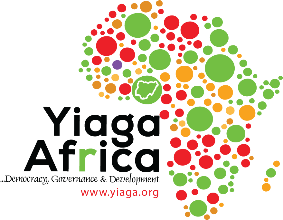Yiaga Africa, a non-governmental organization, on Tuesday called on national parliaments to amend electoral legal frameworks to introduce voting rights for prisoners and special voting for eligible citizens performing essential election duties, such as security personnel, electoral staff, observers, and journalists.
The recommendation was contained in the Preliminary Report of the 2024 Ghana General Election, signed by Dr. Aisha Abdullahi, Chair of Yiaga Africa’s Election Study Observation Mission (ESOM), and Samson Itodo, Executive Director of Yiaga Africa.
Yiaga Africa also urged the establishment of a permanent mechanism for routine post-election reviews to identify and implement actionable reforms.
The report recommended, among other reforms:reviewing ballot paper formats to include candidates’ photographs and names for better electoral clarity.
“Enhancing transparency by disclosing election-related information proactively and involving political parties, civil society, and the media in electoral procurement processes.
“Leveraging technology and ethical use of artificial intelligence to ensure the integrity of voter registration, authentication, and results collation.
“Encouraging political stakeholders to uphold national values, including patriotism, integrity, and public interest, to strengthen democratic processes.”
Yiaga Africa commended Ghana’s electoral practices, noting that measures such as verifying results at the national collation center with party agents promote transparency and stakeholder participation.
The report highlighted key practices such as allowing voters without verification IDs to vote if their names appear on the voter register, reducing disenfranchisement.
The organization further observed that voice prompts like “Rejected” or “Verified” on Biometric Verification Devices (BVDs) enhance the monitoring process for voters and party agents.
Yiaga Africa emphasized the benefits of special voting, proxy voting, and prisoners’ voting, which protect voting rights and boost citizen participation.
“The inclusion of candidates’ names, photographs, and symbols on ballots ensures clarity for voters, while the provision of tissue boxes in voting cubicles reduces smudging on ballot papers.
Other notable practices include the absence of movement restrictions on election day, which allows citizens to vote without hindrances while enabling economic activities to continue
.”The organization also praised systematic, data-driven parallel result tallying by political parties, which promotes oversight and fosters acceptance of electoral outcomes.










